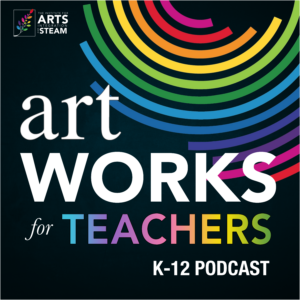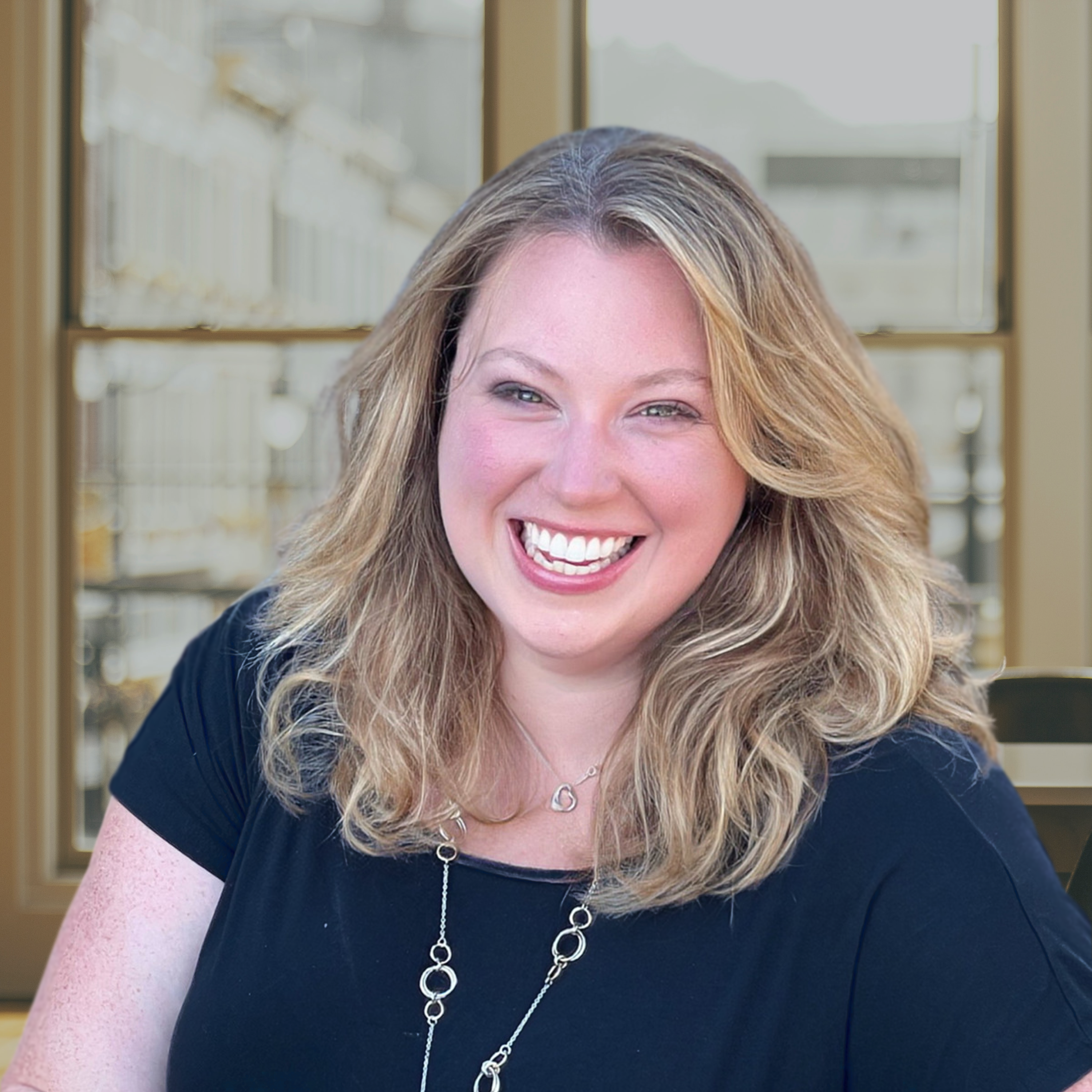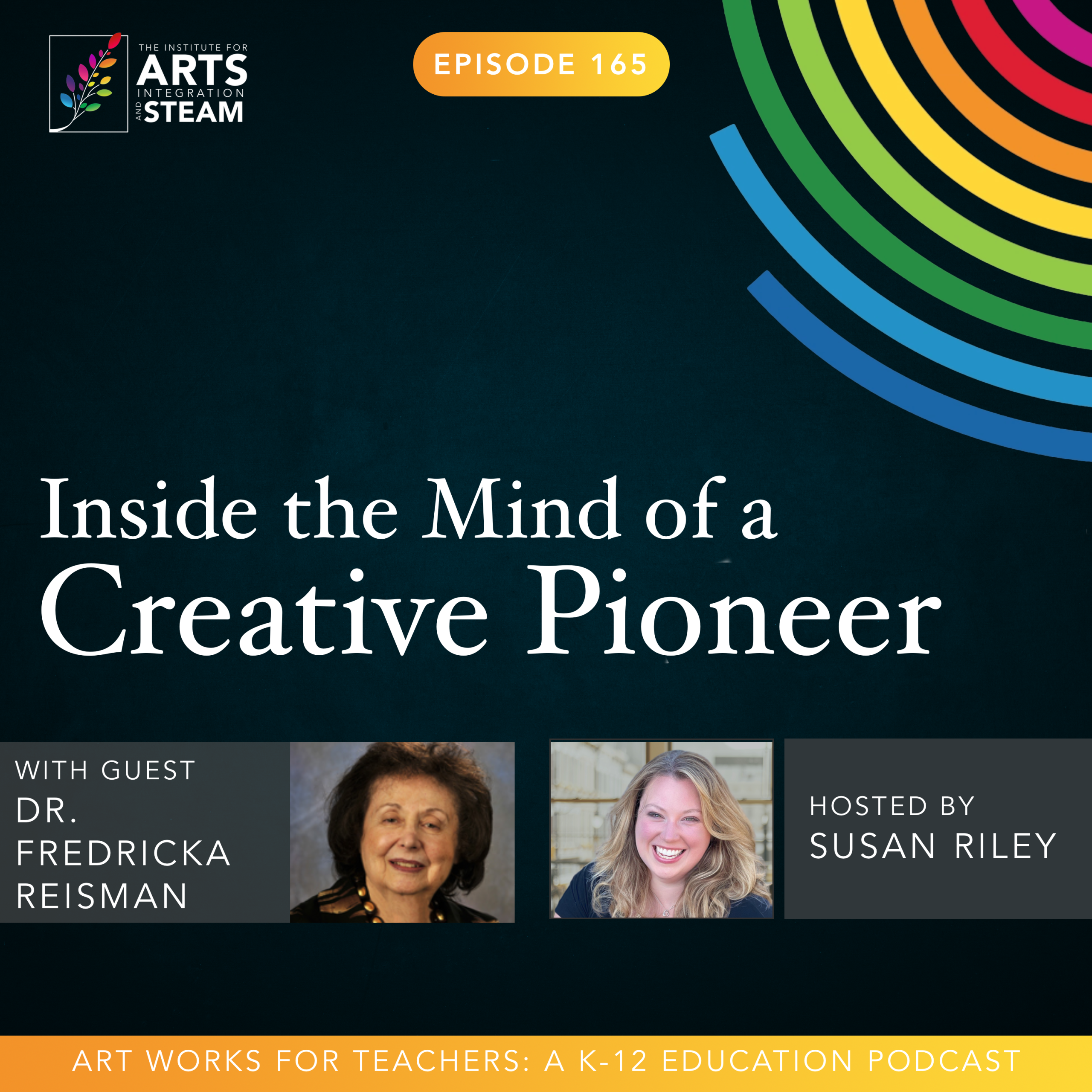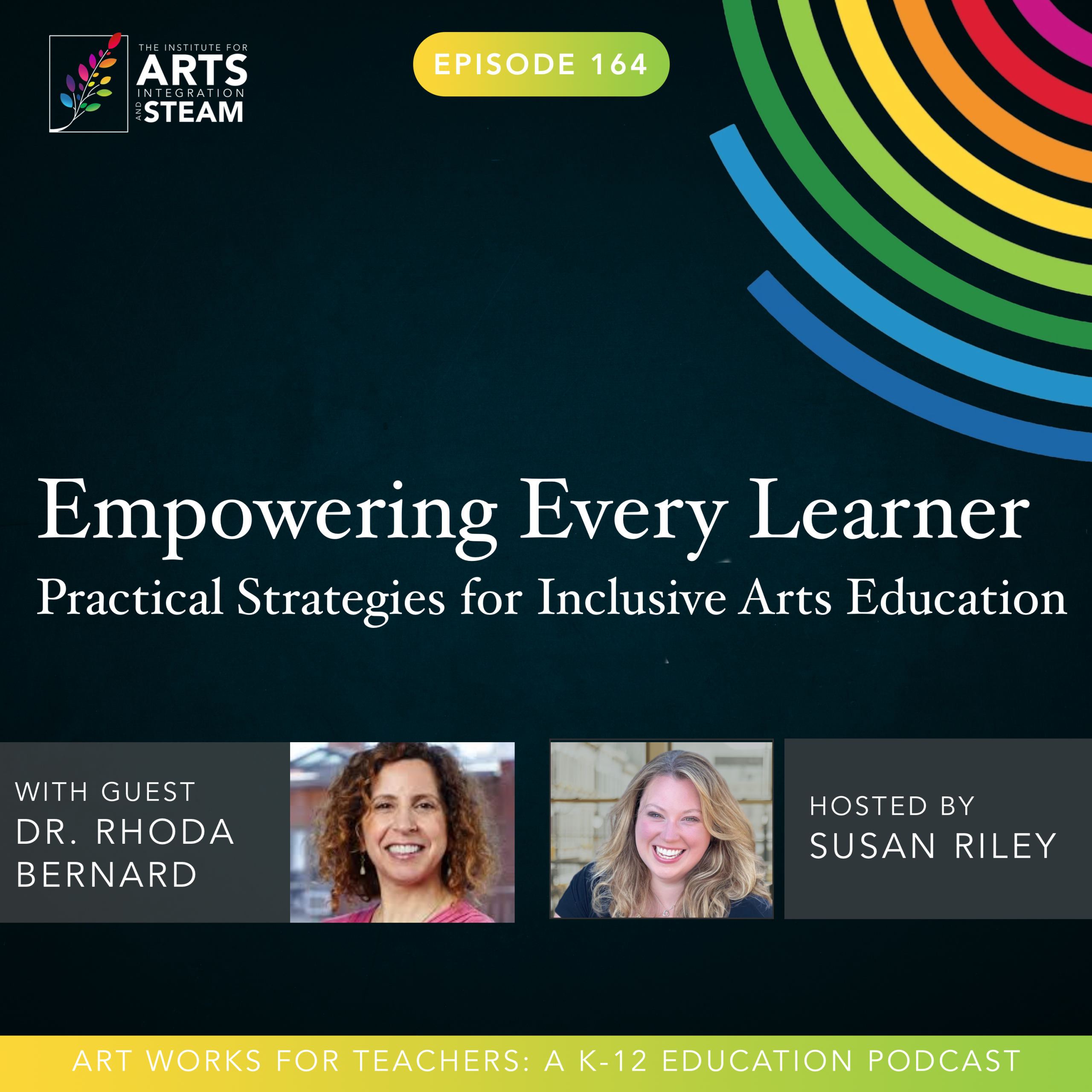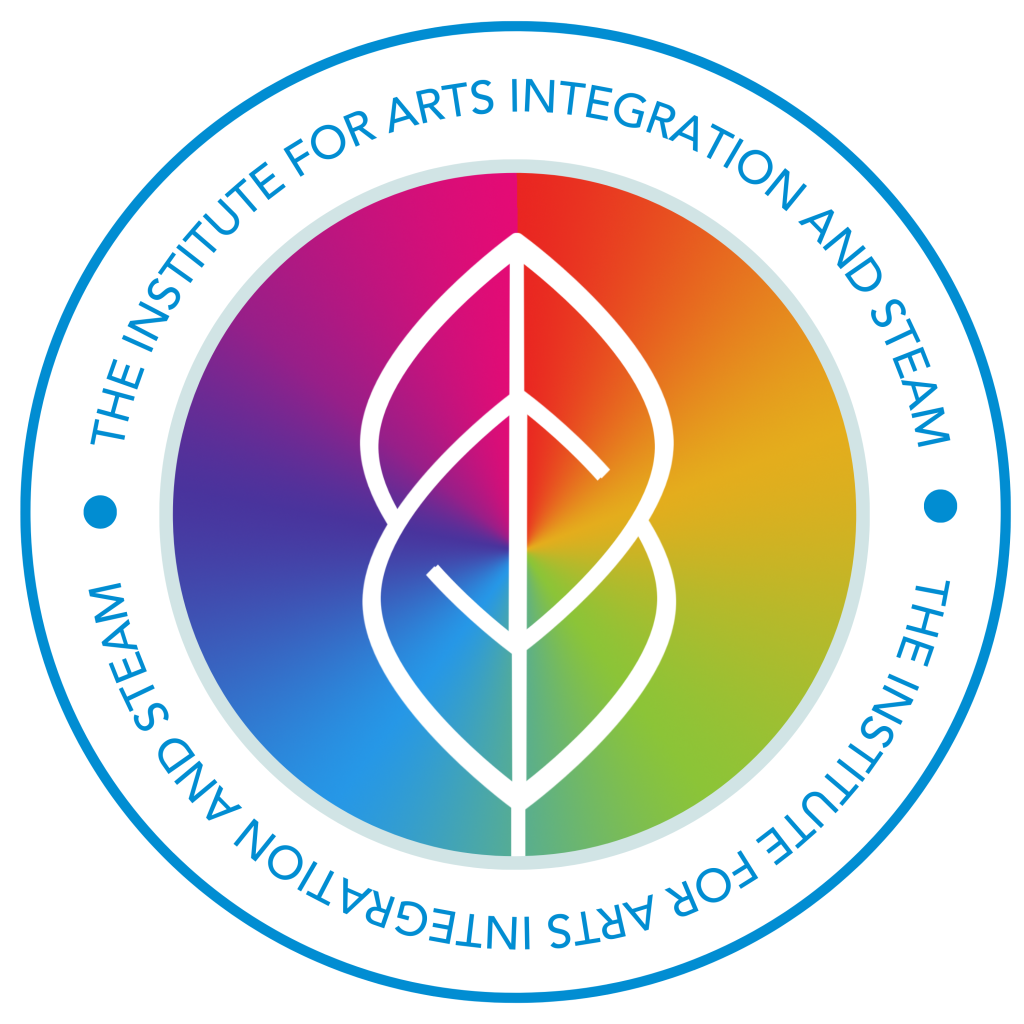ART WORKS FOR TEACHERS PODCAST | EPISODE 160 | 25:48 MIN
The Trust Recession
Enjoy this free download of the Trust Tricks resource.
Hello, friend, and welcome back to another episode of Artworks for Teachers. I'm your host, Susan Riley. And today it's just you and me, my friend. We are gonna be talking about something that I think is pervasive right now. It's definitely something that I'm hearing a lot about in the business space, but also somewhat in my personal space. I don't know that it's made it to the personal vernacular just yet.
But it's definitely made it into the business world vernacular, especially with marketing. And that is the trust recession. Have you heard this term before, the trust recession? If you haven't, it's definitely coming down the pike, right? If you have, I think it's something that has been churning for at least the last six months, if not slightly longer. And it's something that if we're…
Thinking about this in marketing perspectives or in the business world, what people are talking about in terms of the trust recession is in regards to AI and having our marketing and make sure that we are building trust with people because people are seeing AI everywhere. They don't know what to trust. They don't know what to believe. And therefore, nobody's buying anything. Nobody is investing in anything. Nobody is supporting any kind of business because they don't know whether to believe it or not, if it's real or if it's not. It's a very real, ironically, it's a very real concern right now. And I think that makes a lot of sense, right? Particularly as this time of this recording, it's November of 2025, we're heading into Black Friday and the holiday season, which so many retailers and small businesses really count on this time of year for people investing in everything. And not only small businesses and retailers, but also a lot of charities and a lot of nonprofits who do the really good work. I saw a statistic that many of those nonprofits, 30 to 40 % of their entire year budget comes from the period of time of Black Friday to the end of December for just a single month. Almost 40 % of their budget comes from that period of time. And so when we're talking about something like a trust recession and people being very careful and cautious and concerned about spending their money in a place that may or may not be real, that's going to affect a lot of really good people who are doing good work in real spaces, right? Because we just simply can't tell the difference anymore. And I think that's a real shame, right? So beyond the marketing side, when we're thinking about the trust recession overall, I think it's really interesting to consider. And this is why I wanted to talk about this today because it starts with, right, business and sales and all of that, but it's really trickling into all of our lives and everything that we're doing. Think about this. When you, what was the last time you looked at something and said, is that real? Like, should I really believe that? Everything I look at in my social media feed anymore is, can I trust this or can I not? Even some of my friends are sharing things which turn out to be AI generated and they feel duped. But then now do I trust that friend because they're sharing things that were not vetted? I don't know, right? It feels very disconcerting.
It's very, it's a strange place to be. We've known for a long time that you can't believe everything you see on the internet and you can't believe everything you read. Now you can't even believe everything you think, that you think you know. And personally, that is scary. That causes a lot of us to just kind of, you know, stop in our tracks. I think of like the cartoon character that just backpedal, backpedal, backpedal, right? It makes us do that because
What do we know is true or not? What can we believe anymore? And that's really disconcerting. Now, not only that, but our children are seeing this as well. I can tell you more times than not, my daughter can identify whether something's AI generated or not, even if it's just text. But at the same time, it makes her so much more jaded when it comes to just taking something at face value. There is a beauty of just being able to walk into a room and assume the good, right? And unfortunately, our children are learning to not do that, to question literally everything. And while there is some merit to that perhaps, I do believe that if we're not in a trust recession, when it comes to our children and what they're thinking in our personal lives and how we teach and in our classrooms and our schools and our communities. If we're not in a trust recession, we are definitely in a trust deficit. And so I've been thinking about this and all of the reasons that this exists, yes, but also what can we do about that? Every generation has this thing of, the good old days, right? And what it used to be like.
My concern is that if my child looks back at this and says this was the good old day, what is coming for her? Right? And for all of the other children that come after her. And so I think we need to work very hard at building trust, building vulnerability, understanding what that means, how to trust each other, how to build discernment over time. And I think definitely the arts can actually help us do that not just the arts, but also any kind of creative critical thinking can help us through a trust recession and through any kind of trust deficit. So what I want to share today are four things that I think are going to help us get through a trust recession in our classrooms, with our students, and maybe even with ourselves. So the first one is strategies that connect. So when we're in our classrooms, any time we can leverage a quick strategy that not only teaches something and connects to our classroom and our standards and our content, but also simultaneously connects us as facilitators with our students so that we are building bonds and relationships. We are strengthening that trust bond. We are investing in the trust account so that when recessions happen, we have money in the bank.
Right? We have that investment in the bank. And so when we start to think about what are some ways that I can build trust in my classroom, I like to start at the very beginning with just some simple strategies. And I'll give you a couple. So one is really easy. think, wonder. Right? First of all, this is a really, and I've talked about see, think, wonder a lot. It's a go-to strategy for a lot of folks. It's almost ad nauseum, but here's why I like it in terms of building trust. One.
It slows everybody down. It allows us to take a breath and have a conversation around what we're seeing, what is being presented to us as something true. can, even the youngest of children, even kindergartners can do this. And the conversations that you can have, while they are wildly different from a kindergartner to a 12th grader, are still really powerful. And it is in the conversation that we build the trust between that student and us because when they are sharing what it is that they see or questions that they have or what they're thinking around what it is that they're being presented with, right? It's vulnerable to share at some point. Also by sharing that out and by recognizing that that is true for them, we acknowledge and allow them to know that we see them. And that is something incredibly powerful when it comes to building trust with one another. People want to be seen. They want to feel seen. They want to feel heard. They want to feel as though you know what it is that they're trying to convey. And a see, think, wonder, a simple exercise where you ask, give somebody something to look at and ask them, what do you see here? What are some things that you're thinking about and what questions you have? What wonderings do you have and allowing them to share that and recognizing that that is true for them, that builds a lot of trust in a very short period of time. That takes less than five minutes. Okay, so that's one quick way to do that in a classroom. Another quick way to do that in a classroom is I love a strategy called drawing by description. And this is where you pair up. And one student is the drawer and the other is the describer.
And you give whatever prompt that you want, whether it's something to hear, something that you want them to look at, an article, a piece of artwork, anything, right? That is fairly simple. You want to just try to keep it simple. I love using Keith Herring for this, his artwork, because it's lines, right? It's simple shapes, simple lines. You give that to the describer. And the describer has to try to get the drawer to recreate what it is that the describer is seeing. But the drawer cannot ask any questions. That is a huge win for building trust. You're trusting as the drawer that the describer is giving you as much information as possible, that the the describer has your best interest in mind, right? Because you're trying to work towards the same goal. This builds a lot of trust, again, very, quickly. And it doesn't have to take a lot of time.
So strategies like that in our classrooms can certainly help. If you love strategies and you want to have a bunch at your fingertips, I would highly suggest getting on our newsletter. We send out a strategy of the week every Tuesday. Get a new strategy. think for this year we've already have 75 in the bank that our newsletter subscribers get. And so definitely subscribe for that over at artsintegration.com.
Scroll down to the bottom of any webpage, put your name and email in, and you'll get on that strategy list free to your email inbox every Tuesday. Okay, number two, a way that we can support and invest in trust during a trust recession are spaces that are meaningful. And so there's two components to this. There's a classroom component and there's a personal component. So I'm gonna start with the classroom first. When we are building spaces, our classrooms, our classroom communities together, we wanna make sure that they're meaningful for our students. This is why when we're talking about student engagement, and we're talking, you know, and all the buzzwords around classroom management and student engagement and student apathy and all the problems, right? It all boils down to what community have you created in your classroom, right? What space have you created? If you create a space of trust, and a space of experimentation where it's okay to not get it right the first time. In fact, it's encouraged. And this is how learning happens, right? And we break it down and students and your children in your room know that you and this space are safe for them to be able to try and experiment and fail and get up and try again and try something different and, you know, mess up a thousand times when it comes to personal relationships with their friends and all of the things that goes into learning how to be a good human, as well as learning how to read and write and work with math problems and all of the sciences and all of the things that we're learning in schools. When the space, the environment for them is a safe space first and also is relevant and meaningful for them, that is when trust is built. It is not only in a safe space. Safe is first. We know that Maslow. Hello. But this is the piece that a lot of people miss. If the space is not meaningful, if it's not relevant to who they are and what their interests are and what their goals are and what they see and what their end game is, what reason do they have to stay there? Right? Again, it's about feeling seen and heard. And yeah, we're living in a time where kids their number one job that they want to be is an influencer. I want to roll my eyes so hard at it, but it's true, right? Let's acknowledge that. Let's at least acknowledge it and say, okay, yeah, if you think you can get all of their learning that you need on YouTube, why do you need to be here in this room, in this space? It's a hard reality, but it is a question, my friends, that if we answer it and if we answer it honestly and then go to make changes so that it is relevant and meaningful for them to be in the room. And they get something in our classrooms that they can't get off YouTube, that they can't get with an AI tutor, that they can't get with an online educator that's not even on the computer with them half the time, right? Why do they need to be in our space? We gotta ask that question. I don't think we've ever asked that question. And if we have, it's been kind of a sidebar conversation. No, it is the conversation.
Because when we make that classroom the place that they need to be, that's relevant to them, whether that's connecting with their, what they listen to in terms of music, the art that they like, what they're interested in, whether it's, know, WWE on Monday nights, I don't know, whatever it is, knowing the kids that are in your classroom and then making your space relevant to those children, you build immediate trust with them so that when the hard stuff comes around,
When it gets challenging, when the work, the real work that we're trying to do with our students begins, they're willing to do it. They're willing to work. They're willing to put it in because they know, they trust you. They trust that you have their interest at heart. They trust that you know what's meaningful for them and therefore because you're presenting it, it must be meaningful because this is a meaningful space, right? Now, here's how I know that's true.
Because as educators, we want the exact same thing when it comes to our professional development and the things that are required for us to be in a room with somebody else. I don't want to go to a PD where somebody is talking about, you know, something that has nothing to do with my career aspirations or what I'm currently struggling with in my own classroom. I don't want to sit there. Why should I? It's not meaningful to me, right? It's a waste of time. And you and I have sat in those meetings a thousand times and we get resentful. And you want to talk about a quick way to strip trust from someone, to cash out in that trust bank, that's it, right? And so if that is true for us, it's also true for our students. So one of the things that we need to really work on as educators, not only creating that space in our classrooms, but also cultivating professional spaces that are meaningful to us. So whether that is creating a monthly staff meeting that's actually relevant to what's going on in the school and with our staff, great, right? Like let's have educators share best practices and what's working. That's a wonderful way to do it. Another great example is to go to conferences and events that are actually built for what your challenges are and are going to give you the tools that you need to empower you to go and make the changes that are necessary, right?
I'm gonna do a pitch for the Arts Integration and STEAM conference that's coming up in 2026, right? If you haven't secured your ticket, I'm gonna tell you right now, just go do it, right? Go to artsintegrationconference.com and do it. And it sounds like I'm pitching, I'm really not. Here's what I'm telling you. If you're sitting here in this space listening to this podcast, you are definitely interested in Arts Integration, STEAM, project-based learning, AI, tech tools, how to make the most meaning for our students in the 21st century. You gotta be in the room where that's encouraged and embraced and then it's happening, right? Because when you're in the space, it's relevant to you. It's meaningful for you. And, right, you'll build trust with others. You will build the network that you need in order to know that when you see something crazy that happens, you can go back to the people you met at that conference, to the people you learned from at that conference, because we're all teachers at that conference. We're all educators. We're all learners.
You can go back to those, that network and ask the questions. Did you see this? Is this real? What should I do here? And it gives you a trust network, right? Just like building that space in your classroom. Third, on developing in a trust recession, it's got to be about developing trust in ourselves, right? I think this is the hardest one. I think this is definitely the hardest one. It's the hardest one to admit.
None of us like to feel foolish. None of us want to feel like we are been, we've been duped in some way, right? And by saying we've got to develop trust in ourselves, that's exactly what we're admitting.
But I also say that we have all had trust damaged. And so we need to find a way to build back trust in ourselves. And I find the easiest way to do that is to invest in ourselves in whatever it is that we want to grow in. So if you want to learn how to be a better cook and cook new recipes for friends and family, you invest in taking a cooking class, right? You invest in yourself.
Because the more you get empowered and you know about that subject, the more trust you have for yourself, the more you build that trust in all capacities of your life. It's not just about the cooking class. It's also that, okay, I've built trust in myself here. I know I can do it. I can trust myself in other ways too, right? So building that is going to be really essential. Whatever that means for you. As a teacher, invest in PB growth in areas where you really want to grow and you really want to get better. Whether that's arts integration certification, you can do that. And so many people have done that and it's changed who they are as teachers fundamentally. Or if it's as simple as taking just a pottery class, because you've always been curious about pottery, right? Don't limit yourself to just your own academic growth. Look at all areas. But we can only develop trust in ourselves when we invest in learning about ourselves and learning more and expanding that and growing into that deeper connection with ourselves. And last but not least is discernment. Developing the skills of discernment, knowing how to look at something critically and ask the questions that are needed to identify whether something is true or not. And this, my friends, this is gonna be one of the keys of the new future that's coming up. And we know it, we all know it. And so,
For those of us who have been around before AI, we knew that critical thinking was important, but I will tell you, we still don't ask enough questions and we don't ask questions that matter. Sometimes when I'm sitting in meetings with people, I'm wondering, is this really what's going to matter at the end of the day? Are we really talking about the things that are meaningful and that matter or not? If we're not, let's stop wasting our time. Let's get to the real issues.
Let's talk about the real things. Let's ask the questions that are going to make the biggest difference. And that is what leads us to discernment. So, and I also want to make one more point here. Discernment also lives in community. It's not a solo act. I think we try to make it a solo act sometimes, but when we're working with others and we're constantly in community with others, it helps our discernment to develop, right, because we're put into situations where we have to develop it. So getting into small groups, building community with others, networking, looking at how do I build my team, the people that I want to be with, the people that I want to trust, and then cultivate that trust with questions and topics that are interesting, maybe a book club or a small group, a cappella group that you want to get involved in, and then go out afterwards and talk with each other.
Right? Getting to know one another and building that community is so important. And at a time when we are becoming more and more isolated, think discernment lives within the communities that we develop. So if you are facing a trust recession right now, personally, professionally, or in the world at large, I hope that these four ideas were helpful for you today and that we learn how to build our trust back again.
I think it's sad thing to lose, it's a scary thing to lose. But I think if we lean on one another, we really take a look at how do we build this back and invest into our trust bank when deposits get made and withdrawals happen, we still have enough in the bank that we can come back to and understand that at the end of the day, people are still good. People are still good and they want good things and we can do things well together. So thanks so much for joining me this week. Next week, I'm excited to share that my good friend and colleague Sally Baker will be with us and she and I have a big announcement that you're not gonna wanna miss. So I hope you'll tune in next week. Thanks everybody, bye for now.


